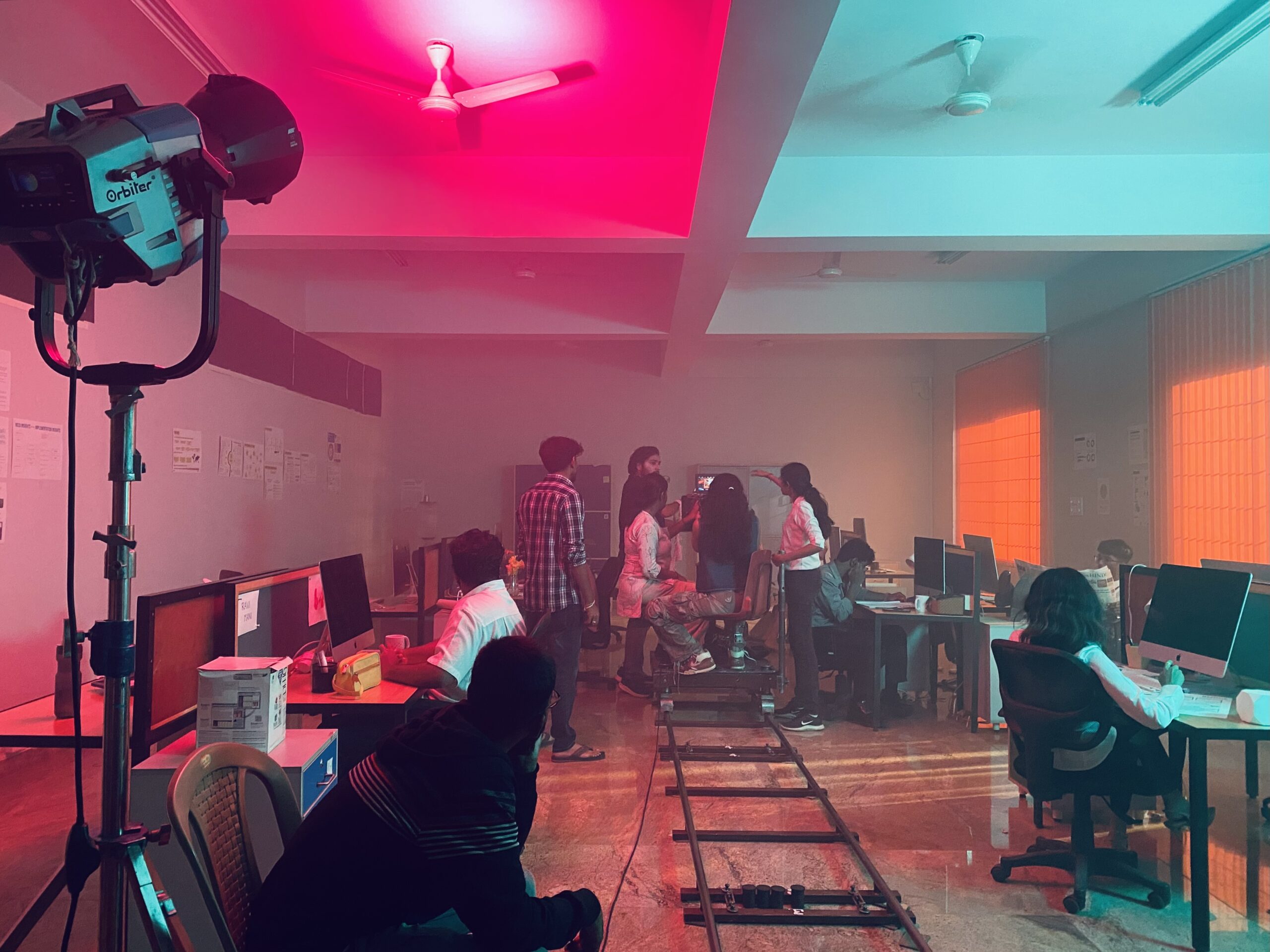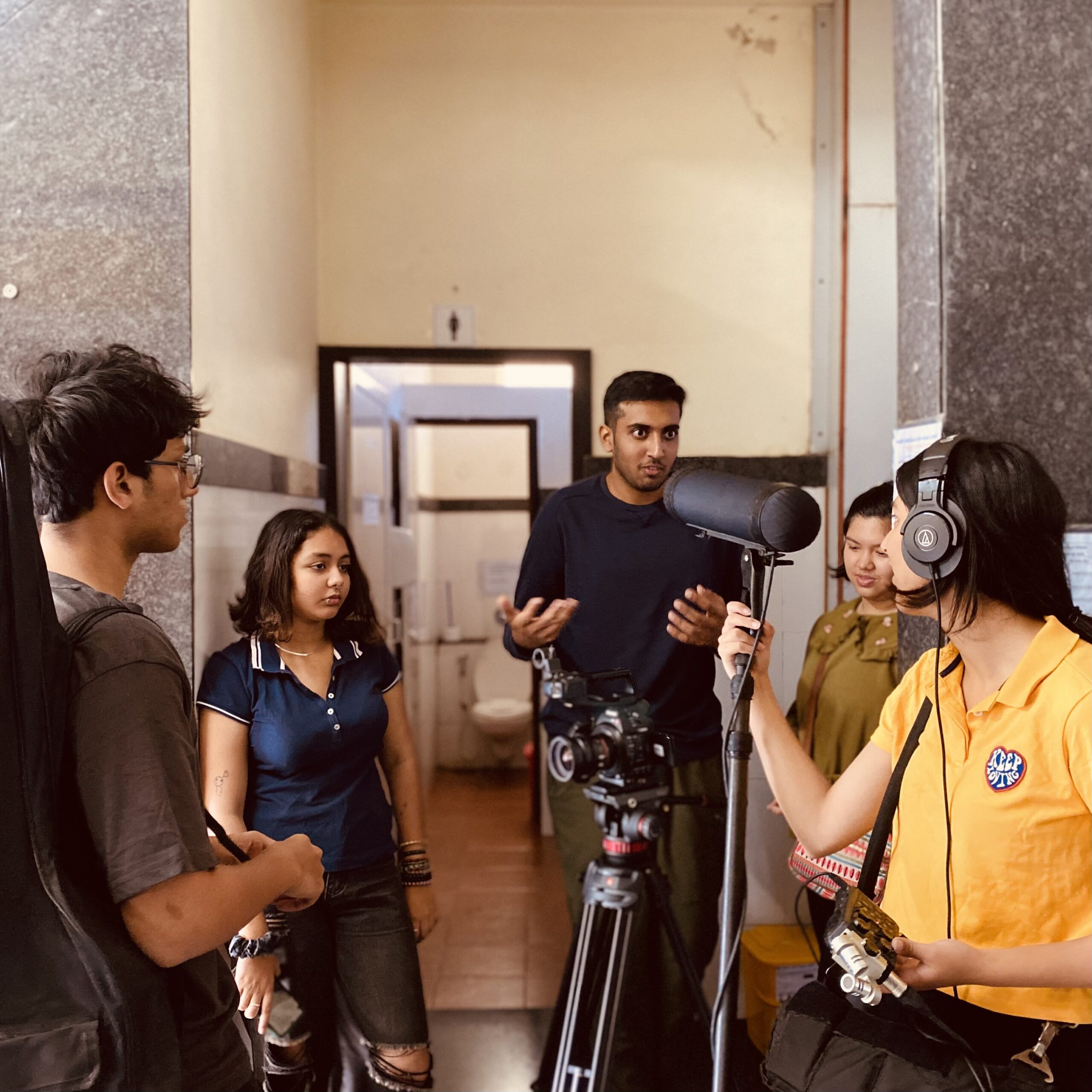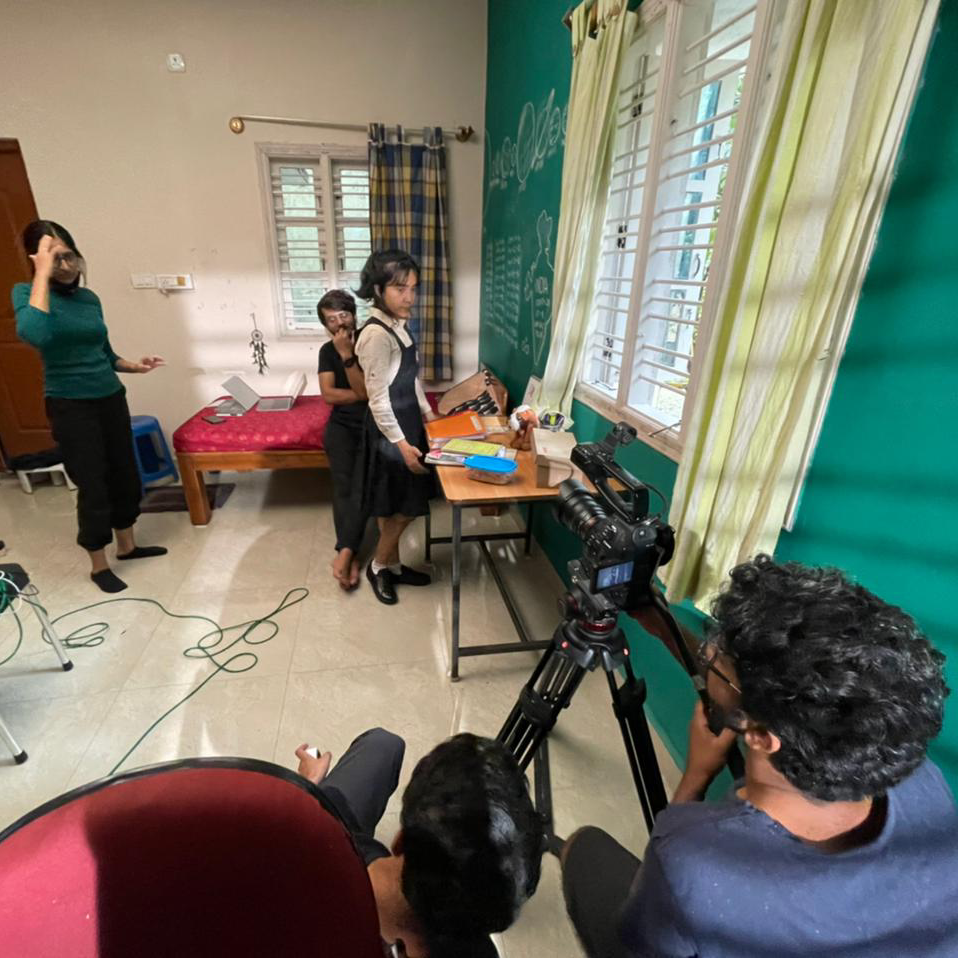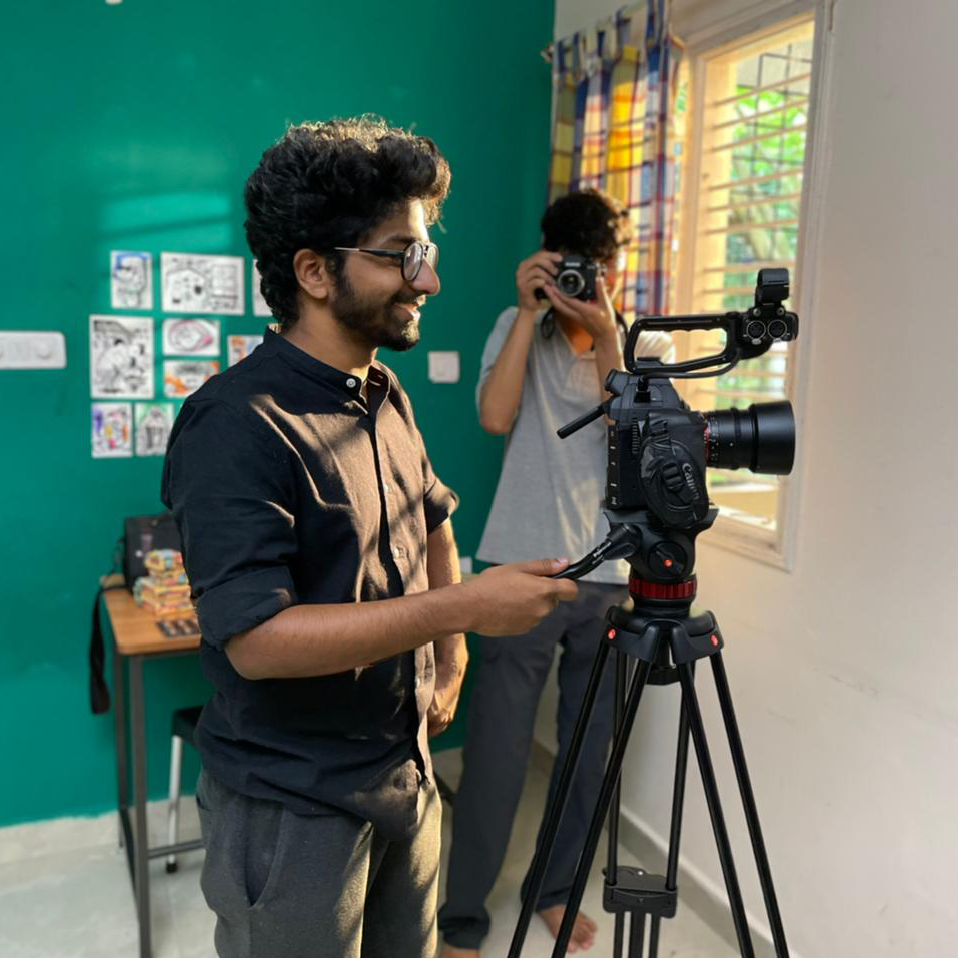Digital Media Production
Pathway 1: Film Production
The Digital Media Production Program offers two distinct pathways.
Film Production
This pathway is designed to train students in shoot-based live-action production. You will be able to learn visualisation techniques for many film and video production formats using format-specific conventions.
Visual Effects
This pathway aims to develop technical and creative competency in individuals who can generate industry-standard computer-generated imagery (CGI). They will engage in comprehensive skills training covering several aspects of film production and post-production.
ABOUT THE PROGRAM
The three-year Digital Media Production course is designed to enable students to develop skilled qualifications in either Film Production or Visual Effects using digital technology. Through focused skill-building, collaborative learning, and industry experience, students will learn how to use technological innovation and artistic skills effectively in a collaborative and dynamic culture of creation. Upon completion, students will be well-prepared for several roles in the rapidly expanding field of Digital Media Production.
The core content of the program focuses on:
Excellence in Film Production or Visual Effects through intensive skill-building.
Technical Innovation through training in the latest technologies in Digital Media Production.
Multidimensionality
Spirit of Collaboration
VISION
As media become increasingly intertwined with our daily lives, there is a growing need for skilled professionals who can produce audio-visual content that engages audiences across viewing platforms. Today, Media and Film production is a complex amalgamation of live-action processes and computer-generated imagery (CGI) in a wide production environment with interrelated departments. Digital production and post-production are crucial to everyday entertainment, irrespective of whether the content is realistic or fantastical.
SECTOR
- Media and Entertainment
The three years of this course align with levels 4, 5, 6, and 7 of the NSQF guidelines and create skilled practitioners for the above sectors.
NSQF, or National Skills Qualifications Framework, is a nationally integrated and competency-based education framework that allows individuals to achieve their desired competence level. In NSQF, qualifications are organized according to the levels based on skills, knowledge, and aptitude.Key Elements Of National Skills Qualification Framework (NSQF):
Skill proficiency promotion to create individuals with international equivalency
Multiple entries and exit provisions for students
Opportunities to help students become lifelong learners
Preparedness for the industry-standard with the development of skills
A transparent mechanism for the growth of students
PATHWAY 1: FILM PRODUCTION
The Film production pathway is designed to train students in shoot based live action production. You will have the opportunity to learn visualisation techniques for many formats of film and video production using format specific conventions. Through hands-on experience, you will gain a vocational level understanding of the production process of short fiction, non-fiction and promotional videos with a coherent and evocative narrative.
What you will learn
Year-1 (NSQF Level 4 & 5)
Introduction to live-action elements.
Technical training in language and writing.
Creative instruction in cinematography.
Foundational knowledge in sound and editing.
Basics of production techniques.
Ability to produce beginner-level audiovisual content after one year.
Year-2 (NSQF Level-6)
Training in the three stages of production during the second year.
Development of ideas and production skills in both single and multi-camera shooting environments.
Exposure to producing content in various formats.
Ability to understand production briefs and create film and video content at an intermediate level by the end of the second year
Year-3 (NSQF Level-7)
Specialized skill enhancement in content production for clear communication and brief fulfilment in year three.
Opportunities for focused learning in specific areas of media production.
Achievement of the ability to independently undertake various media projects at a vocational level by the end of the third year.
PATHWAY 2: VISUAL EFFECTS
The Visual Effects pathway aims to develop technical and creative competency in individuals who can generate industry standard computer-generated imagery (CGI). They will engage in a comprehensive skills training covering several aspects of film production and post-production. The approach for teaching encourages research and innovative thinking along with a highly focused development of craft. Srishti has a state-of-the-art green screen studio and a well-equipped shooting floor to support the student’s learning.
What you will learn
Year-1 (NSQF Level 4 & 5)
Understand visual effects fundamentals.
Learning pre-production techniques, including storyboarding, pre-viz, and motion graphics.
Training in rotoscopy, green screen techniques, and 2D compositing.
Introduction to 3D world building, including modelling, texturing, and lighting.
Gaining practical experience with compositing software.
Exposure to industry work culture, production pipeline, and collaborative practices.
Year-2 (NSQF Level-6)
Development of advanced skills in 3D and compositing software.
Expertise in creating realistic 3D dynamics and simulations.
Proficiency in set extensions, animation, and advanced compositing techniques.
Application of skills to replicate real-world phenomena within a digital environment.
Practical experience through industry apprenticeships, applying learning in a professional setting.
Year-3 (NSQF Level-7)
Hands-on experience in a production studio, honing practical skills in a specialized role.
Opportunity to identify and develop expertise in a specific area of interest within visual effects.
Execution of a capstone project, either individually or in a team, to apply and showcase acquired knowledge.
Cultivation of investigative thinking, project management skills, and specialized expertise through the capstone project.







